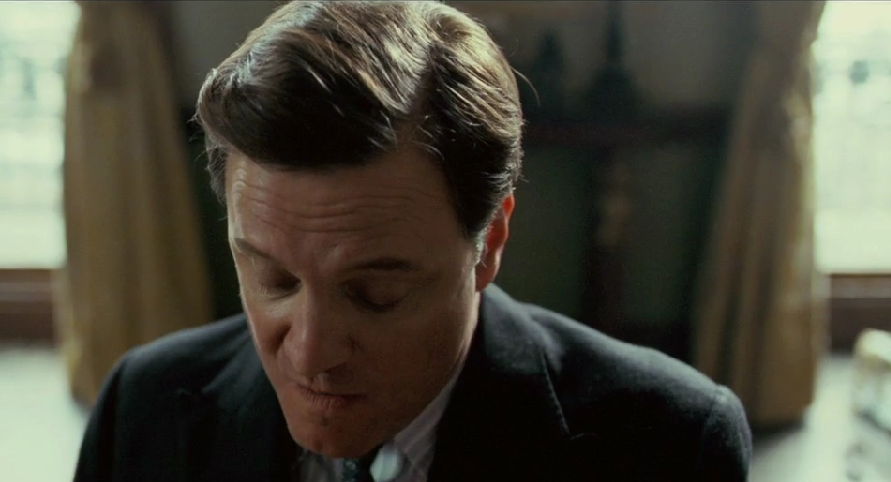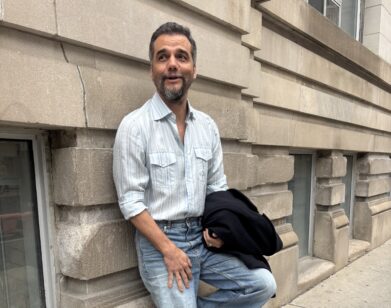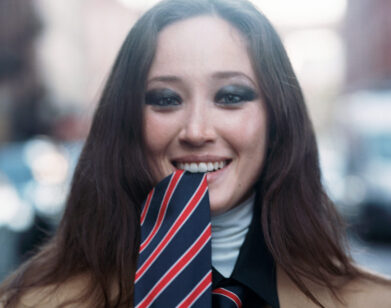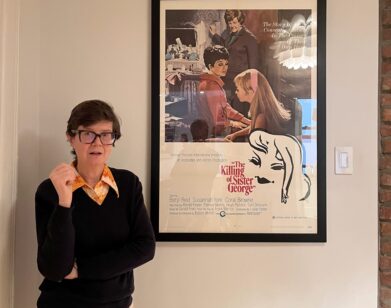For Tom Hooper, The Past is Present

TRAILER COURTESY OF WEINSTEIN CO.
In The King’s Speech, director Tom Hooper, known for his work on historical dramas such as The Damned United and HBO’s John Adams, takes on the daunting task of telling the story of King George VI’s crippling battle with a stutter and his sudden rise to power. A surprisingly gripping film, the story centers on the King, played to perfection by Colin Firth, who spars with the barrier-breaking Australian speech therapist Lionel Logue (an energetic Geoffrey Rush). Rounding out the royal family is Helena Bonham Carter as the King’s wife Elizabeth and Guy Pearce as the self-centered Edward, who abdicates the throne. Coming to screen nearly 28 years after screenwriter David Seidler had the initial idea, the making of the film was as much serendipitous luck as hard work—Hooper took on the film only after his mother saw a reading of the stage version. Seidler happened to find the grandson of the actual Logue, who shared his grandfather’s journals with the writer.
However, in spite of the film’s historical roots, the story reflects many the personal dramas of its creators. Screenwriter Seidler grew up with a painful stutter, and became a fan of the King after listening to his imperfect Christmas broadcasts. Hooper, who grew up in London with a British father and Australian mother, had an unexpected attachment to the story. “I think is the most personal film I’ve made, because I grew up in a home where my Australian mother [was] unpacking the effects [of the past] on my British father,” Hooper explains. “My dad lost his father in the war at three, he went to full-time boarding school at the age of five. So I grew up with that kind of cultural exchange going on, in my house of an Aussie with those cultural freedoms [arising] from the British culture challenging British norms.”
Though Firth’s performance is now drawing raves, he was initially an uncertain casting choice for Hooper. “When I first thought about Colin, my reservations were that he is ten years too old. King George VI is 39 at the end of the movie, which is interestingly quite young. Colin is a big strapping lad of 6’2″ and the real king is slight and smaller and sickly-looking, almost.”
However, the Oscar-nominated actor was able to tamp down his natural good looks for the part. “When he stood, he would stand in an awkward way—so I think physically, he very quickly became more like the king. I think the most extraordinary day for me was the first day. There’s always that voice, wondering, Is he one of the greats or is he just very good? I just realized that he’s one of the greats,” Hooper says.
Going toe-to-toe with Firth’s King George was Geoffrey Rush’s casually hilarious speech therapist Lionel Logue. Logue breaks down the King’s barriers—a dynamic that held offscreen as well as on, said Hooper. “It was interesting working with these two men, because Colin, he’s very funny but he’s quite reserved, and Geoffrey has got this great dynamism and I could just see that there was such an interesting energy clash going on.” Due to his schedule, Rush had to leave the shoot before filming wrapped, leaving behind his onscreen partner. “Geoffrey left to do a play. Colin was kind of mourning. It was very sweet. And of course Helena got very jealous, and was always making jokes about how [the film] was a love story and it wasn’t with her.”
THE KING’S SPEECH (WEINSTEIN CO.) WILL BE RELEASED NOVEMBER 26.






